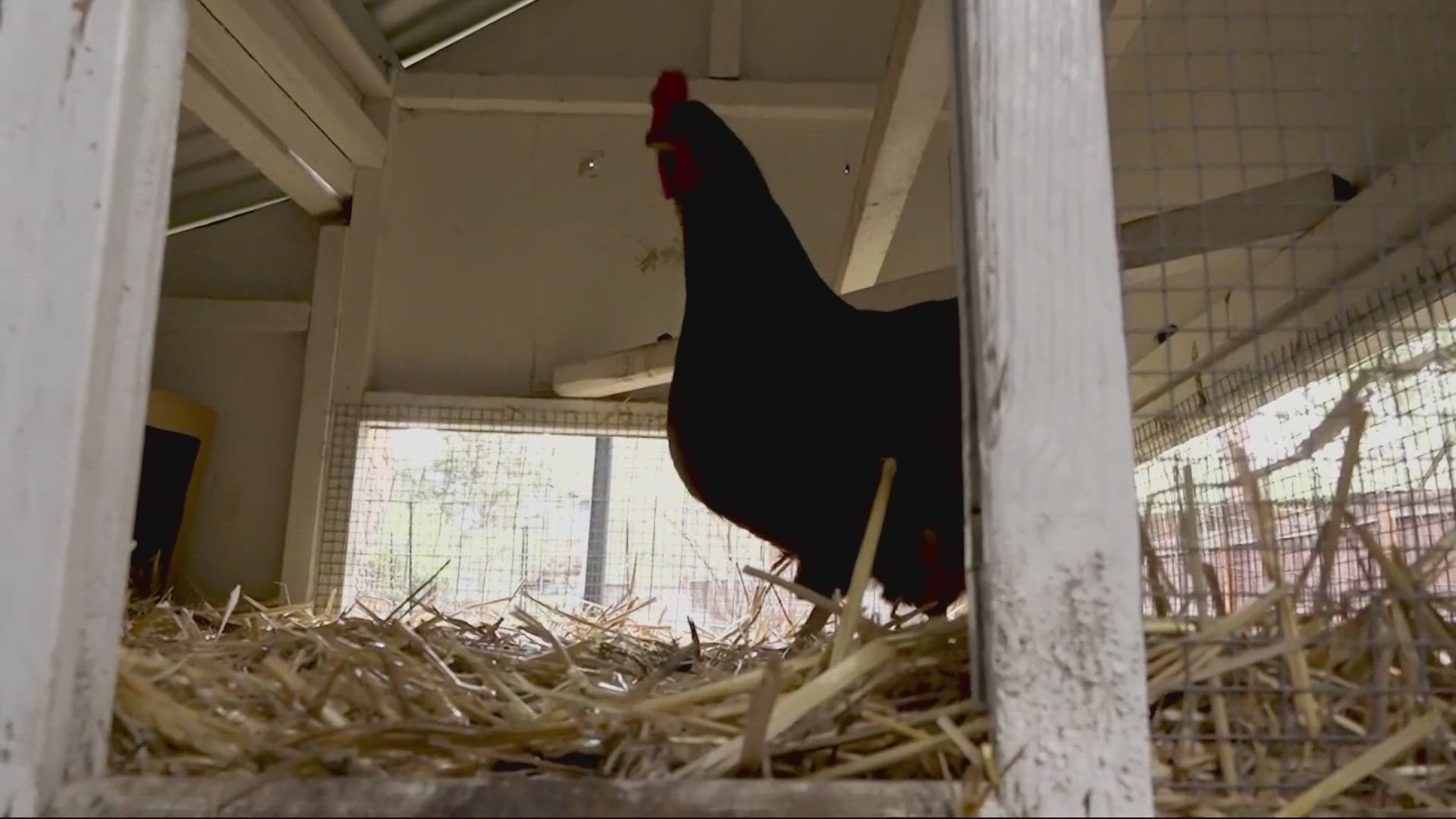PORTLAND, Ore. — The Centers for Disease Control and Prevention (CDC) on Friday confirmed Oregon's first case of a human contracting bird flu, or avian influenza, the Oregon Health Authority (OHA) reported.
The human contraction was from a previously reported outbreak that affected about 150,000 birds at a commercial poultry operation in Clackamas County. The OHA, which said it's not releasing any other details about the person or the operation to protect the privacy of the person, reported there's "no evidence of person-to-person transmission and the risk to the public is low."
"The individual experienced only mild illness and has fully recovered," said Clackamas County Public Health Officer Sara Present. OHA said the person was treated with oseltamivir, an antiviral medication, and people who came into contact with the person in their home were prescribed oseltamivir prophylaxis.
This version of bird flu — known as Type A H5N1 — has been spreading widely in the U.S. among wild birds, poultry, cows and a number of other animals. In October, the first U.S. case of bird flu in a pig at an Oregon farm raised concerns over potential exposure to humans. The flu's persistent spread increases the chances that people will be exposed and potentially catch it, officials say.
So far this year, more than 50 human cases have been reported — in California, Washington, Colorado, Michigan, Texas, Missouri and Oregon — with mostly mild symptoms, including eye redness, reported. All but one of the people had been in contact with infected animals.
RELATED: 1st US case of bird flu in pig from Oregon farm raises concerns over potential exposure to humans
Dean Sidelinger, health officer and state epidemiologist at OHA, said that people who have had "close or prolonged, unprotected exposures" to infected birds or other animals or to environments contaminated by infected birds or other animals are at higher risk of infection.
OHA, the Oregon Department of Agriculture (ODA) and the CDC are working together to monitor any people who have been exposed to infected animals. They've also provided personal protective equipment and training to affected farmworkers.
"This has proven an extremely effective approach to avian influenza outbreaks," Sidelinger said. "While we cannot prevent every case, we know that we are preventing many."
To reduce risk, OHA said people should do the following:
- Avoid contact with sick or dead birds or animals, or their droppings or litter
- Don't drink or eat unpasteurized or raw dairy products like milk or cheese

